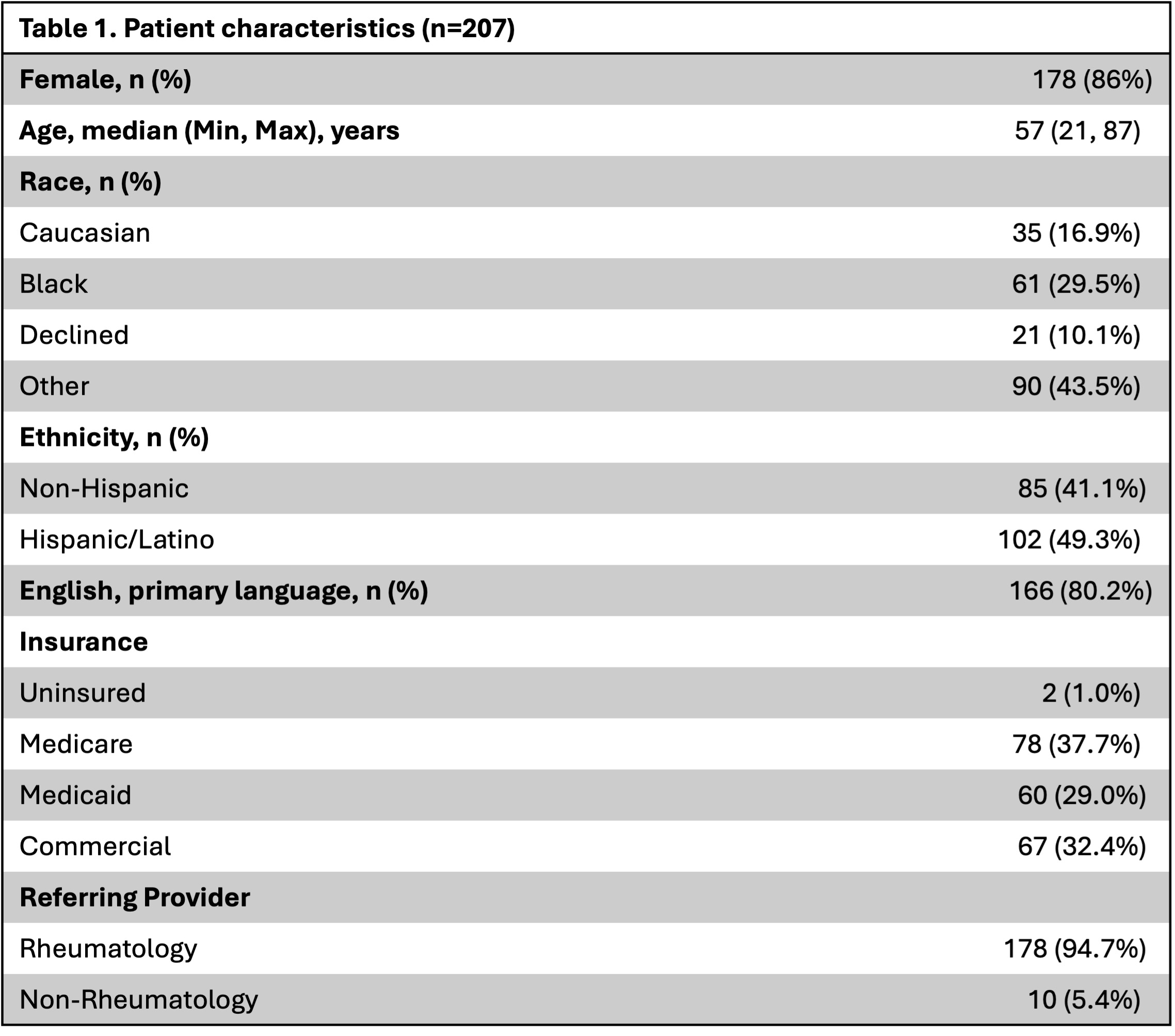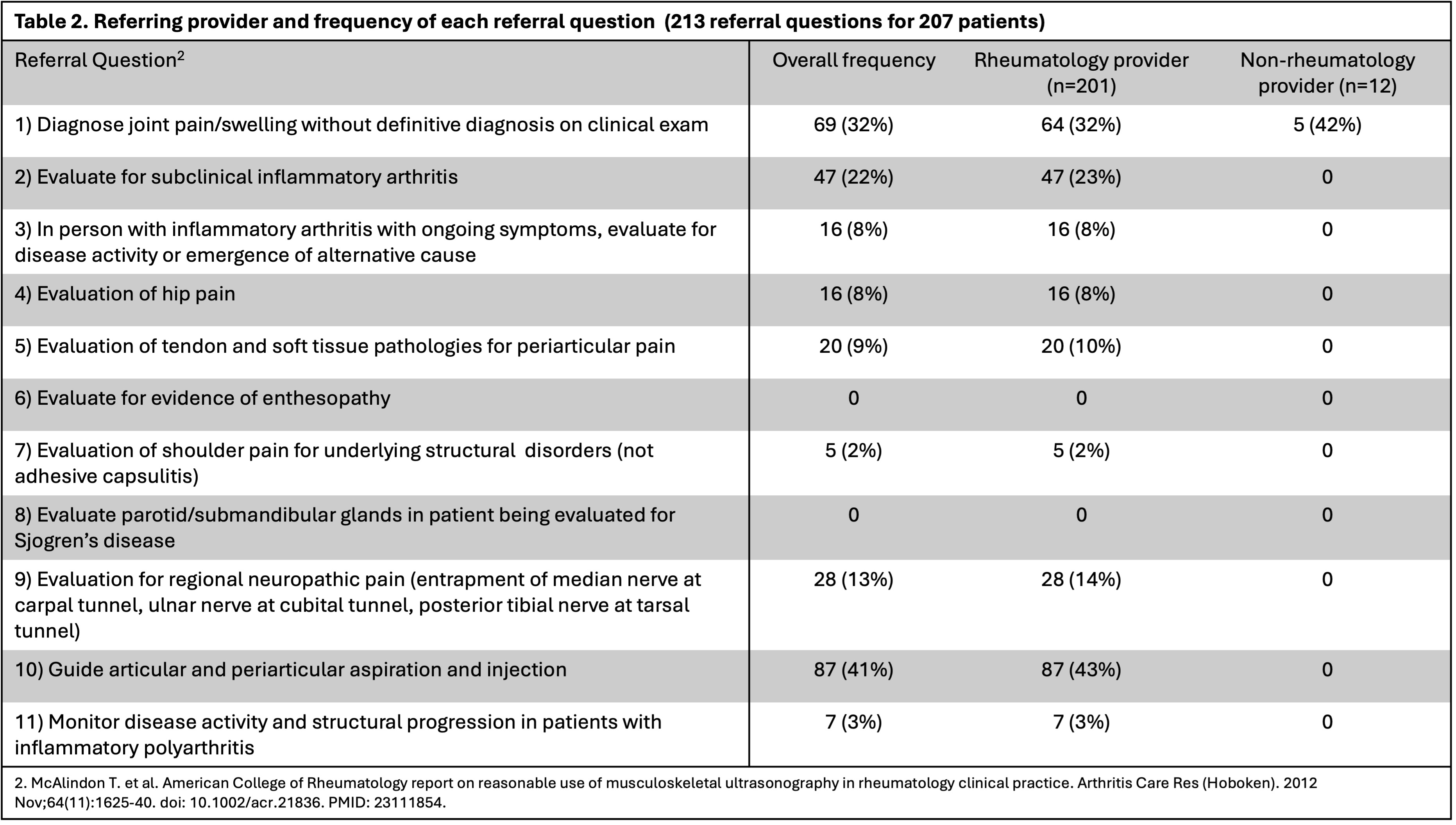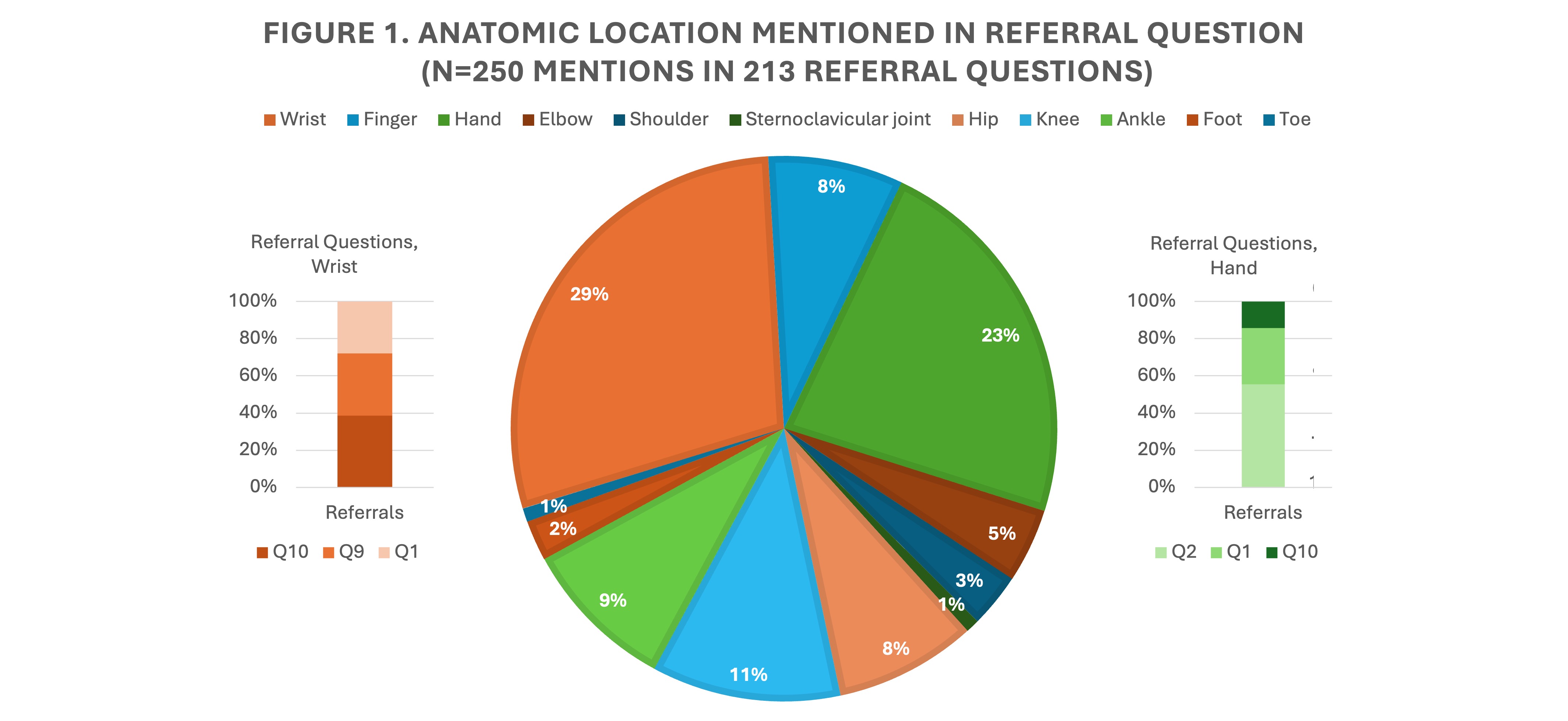Session Information
Session Type: Poster Session C
Session Time: 10:30AM-12:30PM
Background/Purpose: Musculoskeletal ultrasound (MSUS) in rheumatology has gained popularity in practice, due to its efficiency in testing joint and soft tissue spaces while remaining non-invasive and relatively affordable.1 As interest in MSUS increases and referrals to MSUS clinics become more frequent, the questions raised by referring providers can be used to uncover learning opportunities, such as in the physical examination and understanding of disease pathology. This study sought to identify common referral themes to a MSUS clinic at a tertiary academic hospital to explore the current utilization of MSUS and identify areas for future educational focus.
Methods: A retrospective analysis of 207 patients that attended the rheumatology MSUS Clinic at an academic tertiary medical center was performed from March 2022 to September 2023. The referral question for each visit was reviewed in addition to patient demographic information. Referrals. were categorized based on acceptable clinical scenarios for MSUS established by ACR.2 Frequency of referral questions were analyzed in relation to provider specialty, as well as frequency of anatomical location requested to be evaluated.
Results: The most common referral question was to guide articular/periarticular aspiration and injection (87 [41%]); the second was to diagnose joint pain or swelling (69 [32%]); this was also the only referral question posed by non-rheumatologists. The third most common was to evaluate for subclinical inflammatory arthritis (47 [22%]). Specific anatomic locations were requested to be evaluated 250 times; the most common being the wrist (72 [28.8%]), and the second most being the hand (57 [22.8%]). For the wrist, the most common referral was to guide aspiration and injection (Q10; 29 [40.3%]) the second to evaluate for regional neuropathic pain (Q9; 25 [34.7%]), and the third to diagnose joint pain/swelling (Q1; 21 [29.2%]). For the hand, the most common referral was to evaluate for subclinical inflammatory arthritis (Q2; 31 [54.4%]) and the second to diagnose joint pain/swelling (Q1; 17 [29.8%]).
Conclusion: There were very few referrals from non-rheumatologists, suggesting the need to increase awareness of MSUS outside of the field. Common themes amongst referrals include diagnosis of joint pain and subclinical inflammatory arthritis, although the most common referral was for US guided procedures. This is reflective of ongoing interest in multimodal pain management, reinforcing the need for training in this desired area. The most common anatomical regions mentioned were the wrist and hand, with referrals mostly diagnostic in nature; many referrals for the wrist related to the diagnosis and care of carpal tunnel syndrome. Greater educational emphasis on the anatomy and provocative tests for these complex regions may prove practical to trainees. Overall, these findings can help inform training for rheumatologists in both MSUS and general practice.
- Valle, A. and Mahmood, S.N. (2023), Current State of Ultrasound Training in US Rheumatology Fellowships. Arthritis Care Res, 75: 2245-2247. https://doi.org/10.1002/acr.25120.
To cite this abstract in AMA style:
Brennan K, Weisleder H, Lichtiger A, Fazzari M, Mahmood S. Identifying Educational Opportunities Through Examination of Referrals to Rheumatology Musculoskeletal US Clinic [abstract]. Arthritis Rheumatol. 2024; 76 (suppl 9). https://acrabstracts.org/abstract/identifying-educational-opportunities-through-examination-of-referrals-to-rheumatology-musculoskeletal-us-clinic/. Accessed .« Back to ACR Convergence 2024
ACR Meeting Abstracts - https://acrabstracts.org/abstract/identifying-educational-opportunities-through-examination-of-referrals-to-rheumatology-musculoskeletal-us-clinic/



